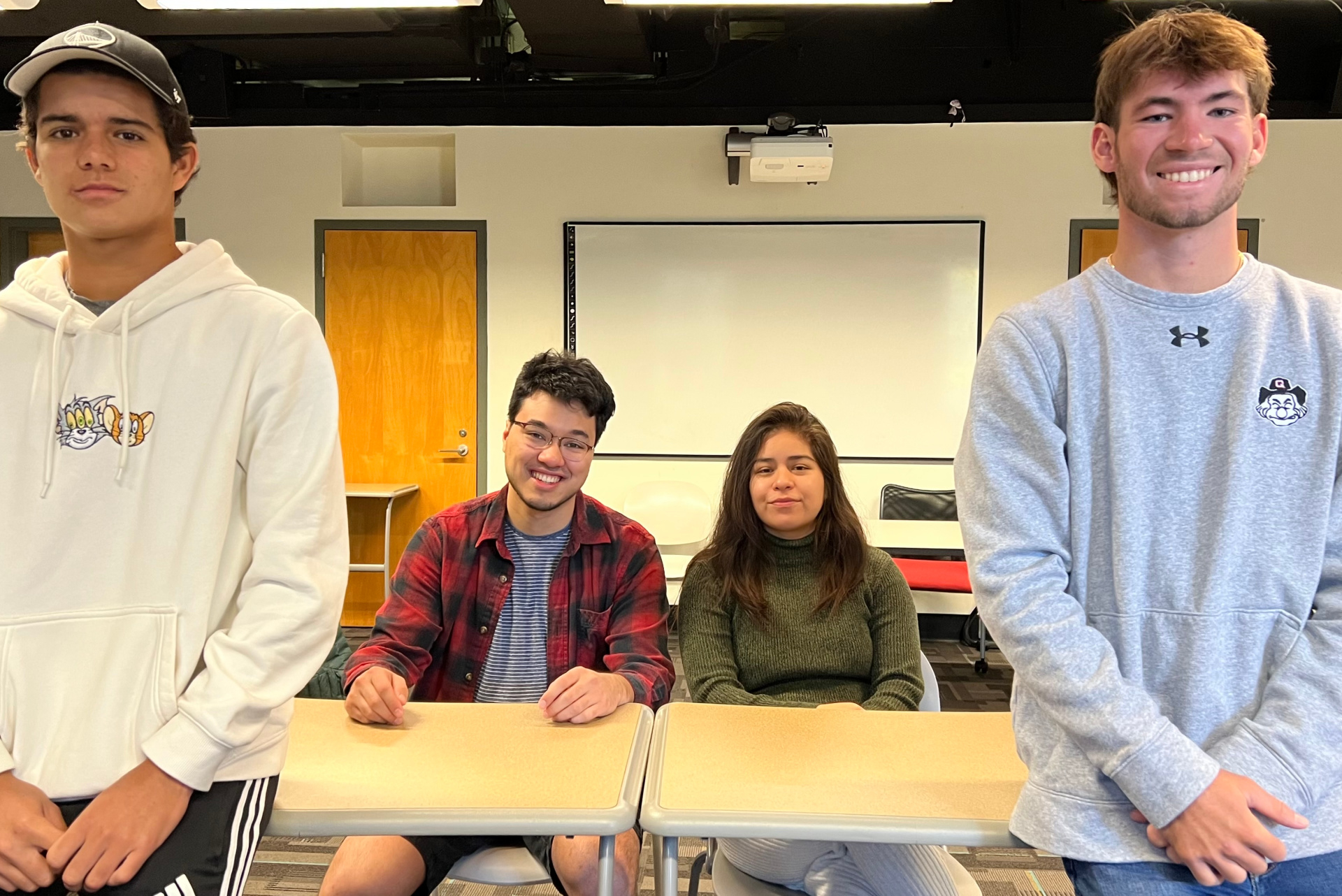
Facing several teams of graduate Analytic students from across the state, four Guilford students helped their team take home $2,000 in a local Analytic contest.
“There were a lot of experienced, graduate students in that competition, which only makes what our students did even more impressive."
A team that included four Guilford College students entered a statewide business data analytics competition on the promise of earning extra credit from their professor. They earned more than extra credit: Amy Mejia ’24, Evan Mendyk ’25, Roman Raies ’23 and Andres Mercedes ’26 finished second in the competition and shared the $2,000 prize.
The two-day tournament was held last month and, in addition to Guilford, involved six teams from Wake Forest, UNC Greensboro, UNC Charlotte and North Carolina State. Unlike most of the other teams competing, all of the Guilford students were undergraduates.
“There were a lot of experienced, graduate students in that competition, which only makes what our students did even more impressive,” says Guilford Economics Professor Natalya Shelkova.
A team from UNC Greensboro won the event.
The Arch MI Data Drive was sponsored by Arch MI, a national mortgage insurance company based in Greensboro. Students were asked to pore over reams of data about Victory Junction, a nonprofit getaway camp for children with serious medical issues located in Randleman, N.C., to help the organization improve its business operation.
Guilford’s budding Analytics major is only two years old and has five students declared as majors and five more who are minoring. It's a major that encompasses three different departments at Guilford: Computer Science, Economics and Math.
Natalya says it’s a growing field, one that will only get bigger as more and more companies and organizations continue to collect data but struggle with how to use it. “That’s where an Analytics major can help a business. They go deep into the data, analyze it and help businesses make decisions based on what they find,” she says.
When Natalya heard about the contest at the last minute, she offered her students extra credit if they showed up to compete. Ami rounded up Evan, Roman and Andres and the students spent two days taking Victory Junction’s raw data and transforming it into usable information.
“It was great to (finish second) but I think the most incredible part of the weekend was that we got to solve problems for the nonprofit,” says Amy. “Having data doesn’t necessarily give you insights into what to do with that data. It was our job to make the data presentable to make it clear to Victory Junction that here are the things they need to keep doing consistently and here are some things they need to do differently.”

